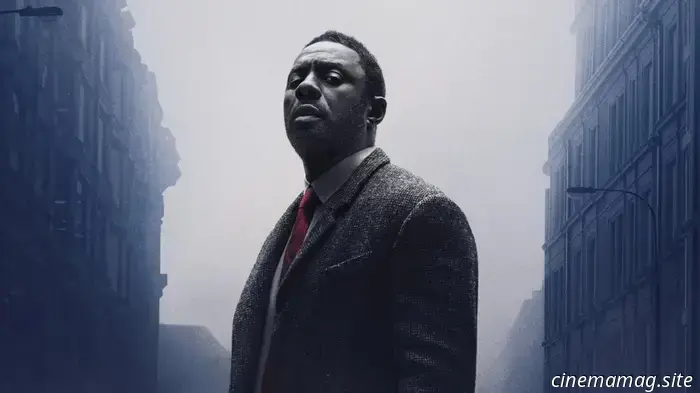
Coronado Island Film Festival Panelists: The Current State of the Industry is Frightening, Therefore Take Charge
Bettina Sherick has invested considerable time in discussions with Hollywood executives who, as she states, were “motivated to maintain the industry’s status quo.” Throughout her extensive career across various major studios, she recalls numerous industry professionals dismissing concepts that would eventually transform everything.
“I’ve been in meetings where people scoffed at Netflix when they began mailing out DVDs and later mocked them for their streaming service. What they didn’t recognize is that Netflix accumulated a vast database of viewer behavior, which they then utilized to establish a streaming business that altered our industry,” Sherick remarked last week at a State of the Industry panel during the Coronado Island Film Festival.
As the founder of Hollywood in Pixels, a foundation focused on digital marketing advancements, Sherick believes Hollywood is poised for another significant turning point — this time regarding AI — advocating for acceptance of change rather than ignoring it once more.
She urged a focus on “considering our responsibilities as guardians of this industry to prevent the emergence of disruptive outsiders.”
Sherick was among five panelists at the State of the Industry discussion, moderated by MovieMaker. The key takeaway was clear: while change can be daunting, it also presents fresh opportunities.
Sherick is so receptive to AI that she utilized ChatGPT to determine a new location when she decided to relocate from Los Angeles. She provided the AI chatbot with her housing preferences, and it suggested Gig Harbor, Washington, where she now resides.
However, that’s just one potential application of AI.
### Best Methods for Filmmakers to Utilize AI
From left to right: Aaron David Roberts, CEO of the Chula Vista Entertainment Complex; actor Joshua Close; moderator Tim Molloy of MovieMaker; Brian Walker, CEO of Picture Motion; James Oliver, actor and founder of BLCKBRD Films; Bettina Sherick, CEO and founder of Hollywood in Pixels. Photo by Tony Amat for the Coronado Island Film Festival.
Aaron David Roberts, CEO of the Chula Vista Entertainment Complex, pointed out that AI can significantly assist with tasks such as creating shot lists and drafting pitches. Additionally, James Oliver, actor and filmmaker and founder of Blckbrd Films, highlighted his use of AI to research historical contexts while writing scripts.
Brian Walker perceives it as an innovative tool for establishing new connections. As CEO of Picture Motion, a Los Angeles-based social impact agency that develops socially conscious media and entertainment marketing campaigns, he explained that the company uses AI — with human oversight — to identify relevant experts who can help promote projects related to their areas of expertise.
For instance, with the upcoming film American Solitaire, which explores a soldier's struggles with gun violence, Picture Motion is reaching out to veterans’ organizations.
Walker explained that Picture Motion can quickly compile a list of up to 10,000 organizations within one or two hours — “from churches to community centers to schools” — capable of helping to disseminate information about a specific film. The company then refines the list further.
This type of work necessitates precise prompting — regarding audiences, geography, and other factors. As Sherick mentioned, crafting the right prompts can feel akin to learning a new language.
### What AI Should Avoid
Actor Joshua Close, star of American Solitaire. Photo by Tony Amat for the Coronado Island Film Festival.
The panelists unanimously agreed that AI should not replace creative roles. Joshua Close, who plays a role in American Solitaire, expressed concerns that some of his voice-actor friends are facing lost opportunities due to AI-generated voices.
“There are specific areas where I hope we can impose regulations,” he remarked, emphasizing the need to ensure that AI “cannot overly manipulate performances.”
In contrast, Oliver expressed enthusiasm for the challenges of storytelling in the AI era.
“I’m naturally inclined towards optimism and resilience,” he stated. “I find it exciting when I encounter robots producing lackluster scripts that fail to resonate with the human experience. … There’s a profound artistry that a robot cannot achieve.”
From left to right: Actor Joshua Close; Brian Walker, CEO of Picture Motion; James Oliver, actor and founder of BLCKBRD Films at the Coronado Island Film Festival State of the Industry panel. Photo by Tony Amat for the Coronado Island Film Festival.
The panelists also advocated for innovative approaches to film viewership.
Roberts pointed out that many theaters are underutilized due to a shortage of new films, presenting opportunities for independent filmmakers to lease those spaces.
“Your AMC is your art house,” he remarked. “They require content.”
Walker added that many films Picture Motion collaborates on utilize non-traditional distribution methods.
“We’re utilizing theaters, churches, libraries. We conducted a screening tour at natural history museums for a Nat Geo series. We’re exploring ways to leverage those venues and even create hybrid experiences.”
For example, he mentioned, “I’ve witnessed individuals using video game platforms to host screenings.”
Oliver also suggested novel viewing experiences, such as incorporating live performances by musicians at screenings



Other articles
 Alien: Earth has been renewed for a second season.
Alien: Earth has been renewed for a second season.
Alien: Earth has been renewed for a second season.
Alien: Earth has been renewed for a second season.
 A new trailer for The Housemaid featuring Sydney Sweeney and Amanda Seyfried has been released.
Lionsgate has unveiled a new trailer for director Paul Feig’s forthcoming adaptation of Freida McFadden’s popular novel, The Housemaid. The thriller centers around Millie (Sydney Sweeney), a young woman...
A new trailer for The Housemaid featuring Sydney Sweeney and Amanda Seyfried has been released.
Lionsgate has unveiled a new trailer for director Paul Feig’s forthcoming adaptation of Freida McFadden’s popular novel, The Housemaid. The thriller centers around Millie (Sydney Sweeney), a young woman...
 Idris Elba and Ruth Wilson are set to reprise their roles in the upcoming Luther film.
John Luther is set to return for a new feature film on Netflix, with Idris Elba reprising his famous role. He will once again be joined by Dermot Crowley as DCI Martin Schenk and Ruth Wilson...
Idris Elba and Ruth Wilson are set to reprise their roles in the upcoming Luther film.
John Luther is set to return for a new feature film on Netflix, with Idris Elba reprising his famous role. He will once again be joined by Dermot Crowley as DCI Martin Schenk and Ruth Wilson...
.jpg) Film Review – Rebuilding (2025)
Rebuilding, set for release in 2025. Created and helmed by Max Walker-Silverman. Featuring performances from Josh O’Connor, Lily LaTorre, Meghann Fahy, Kali Reis, Amy Madigan, Jefferson Mays, Nancy Morlan, Sam Engbring, Binky Grip…
Film Review – Rebuilding (2025)
Rebuilding, set for release in 2025. Created and helmed by Max Walker-Silverman. Featuring performances from Josh O’Connor, Lily LaTorre, Meghann Fahy, Kali Reis, Amy Madigan, Jefferson Mays, Nancy Morlan, Sam Engbring, Binky Grip…
 Cinematographer Malik Hassan Sayeed is searching for silver linings following the Hunt - MovieMaker Magazine.
Malik Hassan Sayeed traveled back in time to film Luca Guadagnino’s After the Hunt.
Cinematographer Malik Hassan Sayeed is searching for silver linings following the Hunt - MovieMaker Magazine.
Malik Hassan Sayeed traveled back in time to film Luca Guadagnino’s After the Hunt.
 Sabrina Carpenter will star in a musical adaptation of Alice in Wonderland produced by the team behind Wicked.
Prepare to dive into the whimsical world as pop artist Sabrina Carpenter is poised to star in a musical film adaptation of Alice in Wonderland, produced by Marc Platt, known for his work on Wicked, and directed by the visionary behind Hustlers...
Sabrina Carpenter will star in a musical adaptation of Alice in Wonderland produced by the team behind Wicked.
Prepare to dive into the whimsical world as pop artist Sabrina Carpenter is poised to star in a musical film adaptation of Alice in Wonderland, produced by Marc Platt, known for his work on Wicked, and directed by the visionary behind Hustlers...
Coronado Island Film Festival Panelists: The Current State of the Industry is Frightening, Therefore Take Charge
Coronado Island Film Festival Panelists: The Current State of the Industry is Frightening, Therefore Take Charge
